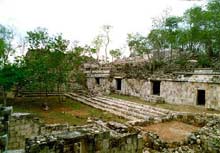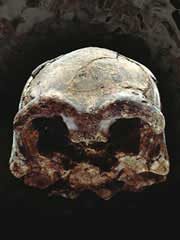News and developments from the field of interdisciplinary research.
Among other topics, you can find stimulating reports and articles related to microsystems, emotions research, futures research and stratospheric research.

A project to develop effective techniques for the ‘surface pasteurisation’ of food led by the University of Bristol is being helped by a new technique developed by scientists at the University of the West of England. Officially titled ‘BUGDEATH’ the project, which in total has eight partners, is aimed at ‘Predicting microbial death during heat treatments on foods’.
Researchers based at the University of Bristol Food Refrigeration and Process Engineering Centre, have been looking at ‘steam p

By using the Hubble Space Telescope (HST) as a `time machine`, astronomers from the Universities of Edinburgh and Oxford in the UK and the Space Telescope Science Institute (STScI) in Baltimore in the USA have been able to trace back the history of massive elliptical galaxies. They have found that galaxies of this kind, which still exist today, were already luminous families of stars about 10 billion years ago when the universe was only one third its present age. Their latest observations suggest tha

Archaeologists of the University of Bonn have just begun the first of three series of excavation programmes in Xkipché on the Mexican peninsula of Yucatán. They are investigating the living conditions of the population shortly before the city was finally abandoned towards the end of the 10th century as well as the city?s role as the residence of local princes during the turbulent period of its decline.
The location of the find is in the vicinity of the world famous ruined city of Uxmal (rece

Friction pushes a spinning egg from horizontal to vertical.
Mathematicians have cracked the conundrum of the spinning egg. A hard-boiled egg spun on its side flips upright because of friction between the egg and the table, they calculate 1 .
The egg’s elevation appears paradoxical. Its centre of gravity moves up – making the system seem to be gaining energy.
In fact, spinning energy, translated into a horizontal force, pushes the egg upright, sa

Footprints and a fire found from 20,000 years ago.
Handprints and footprints 20,000 years old reveal that people lived on the Tibetan plateau at the height of the Ice Age – 16,000 years earlier than scientists had thought. The newly found signs of life cast doubt on the idea that a glacier a kilometre thick covered the plateau at that time.
David Zhang and S. H. Li of the University of Hong Kong found the marks of at least six individuals, including two children, in marble-l

Ethiopian fossil suggests early humans were one big family.
A one-million-year-old skull unearthed in Ethiopia hints that our long-extinct cousins Homo erectus were a varied and widespread bunch, much like today’s humans. The find may undermine previous claims that H. erectus was in fact made up of two different species. Homo erectus , which means ’upright man’, appeared about 1.8 million years ago. Because of its posture and large brain, it is regarded as t